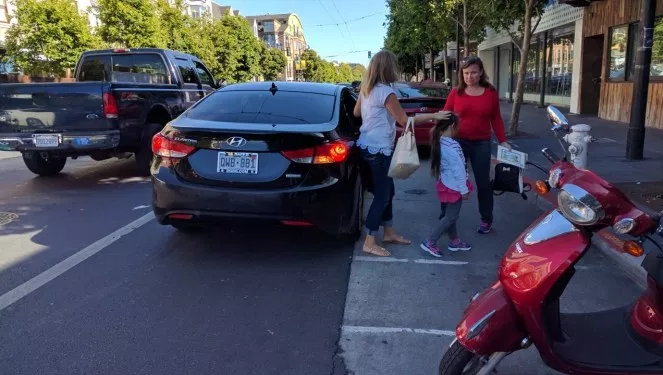California’s Proposition 22, featured on the upcoming November ballot, seeks to ensure that app-based drivers for companies like Uber, Lyft, and DoorDash are classified as independent contractors as opposed to employees. If passed, the measure would exempt gig economy companies from following employment classification rules established under Assembly Bill 5, which went into effect earlier this year.
Under Prop 22, the companies would not be liable for providing drivers with a minimum hourly wage, paid sick leave, or unemployment, among other benefits. Instead, companies would treat drivers as contractors under special rules they created for Prop 22. To date, Uber, Lyft, DoorDash, Instacart, and Postmates have collectively poured over $180 million in funding into the measure, making it the most expensive initiative campaign in state history.
One of the most critical issues the ballot initiative seeks to codify is the strategy of paying drivers only for ‘engaged’ time instead of an hourly wage. ‘Engaged’ time refers to the time between when a driver accepts a service request and when the request is completed. It does not include ‘unengaged’ time spent waiting for the next pickup request. Under Prop 22, compensation would be tied to engaged time. Drivers would earn 120 percent of minimum wage during engaged time and 30 cents per engaged mile, plus a healthcare stipend based on engaged time thresholds.
While this sounds reasonable at first glance, it glosses over the fact that thirty to forty percent of drivers’ time is spent ‘unengaged.’ This substantial chunk of drivers’ time is extremely valuable to these companies. A fleet of drivers dispersed around a city ready to head to a paying customer at a moment’s notice is precisely what makes these services so convenient and popular. It is a huge windfall for these companies, and it comes at the expense of drivers’ ability to make a living wage: factoring in unpaid waiting time and unreimbursed expenses, the UC Berkeley Labor Center found that drivers could make as little as $5.64 per hour under Prop 22.
Unfortunately, if Prop 22 passes, it would tax the environment as much as it does drivers. Studies have shown that ride-hailing increases traffic congestion and carbon emissions, in no small part due to the circling (or ‘deadheading’ in transit nerd speak) that occurs during unengaged time between pickups. One study in San Francisco found that Uber and Lyft were responsible for about half of the rise in congestion in that city between 2010 and 2016. Uber itself recently admitted that the average Uber trip is 41 percent more carbon intensive than a personal car trip, with about a third of those emissions coming from deadheading.
The driver pay structure embedded in Prop 22 could exacerbate these already existing traffic and environmental problems. Since they do not currently pay for unengaged time, ride-hailing and delivery app companies are not incentivized to reduce driver circling that adds to traffic and emissions. In fact, the companies are incentivized to do exactly the opposite – to flood streets with as many drivers as possible to entice customers by reducing wait times. Prop 22 enshrines the companies’ ability to continue doing this in law, as it requires a nearly impossible 7/8ths supermajority in the Legislature to amend it. While COVID-19 has temporarily dampened travel demand, the fallout if Prop 22 passes could become increasingly serious when the economy re-opens, especially if more travelers opt to use ride-hailing instead of public transit over health concerns.
On the other hand, if Prop 22 is defeated and A.B. 5 is enforced, driver pay would be tied to hours worked rather than just ‘engaged’ time. Drivers would receive fairer wages, and it would be less financially attractive for the companies to have drivers idling or driving unproductively. The net amount of deadheading would almost certainly be reduced if companies had to compensate drivers for unengaged time. This could happen via controlling the supply of active drivers (as was done in NYC after they passed minimum wage laws) and/or by reducing unengaged time through other operational changes.
To be sure, many of these companies have taken steps to add features or make future commitments related to environmental sustainability. But they have actively fought against more impactful measures that could threaten their bottom lines, like paying drivers a fair hourly wage and reducing deadheading.
At a time when many Californians are struggling financially and climate change-fueled wildfires are making our state increasingly difficult to live in, now more than ever we must not jeopardize long-term economic and environmental well-being. Prop 22 is just one piece of a larger puzzle, but it is an important one nonetheless. I encourage you to vote no on Prop 22 this November to help foster outcomes that empower workers and reduce environmental harm.
Adam Stocker is a researcher with UC Berkeley and the Sustainable Economies Law Center, where he's studied ride-hailing impacts and alternatively organized platforms. You can find him on Twitter and LinkedIn.






